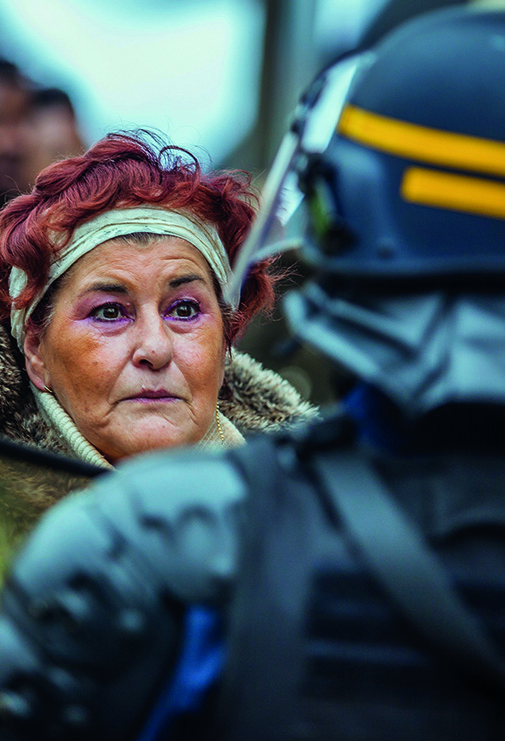- Vol. 06
- Chapter 04

A Mother
Geena goes down there every day, demanding to know where her son is. Nobody can quite recall when Geena started the routine, but it was striking when she did, because she was the last person you’d expect it of.
Before that, if you had asked anyone to describe Geena, they would have had said something along the lines of “meek” or “motherly”, if they had said anything at all. Geena hadn’t been too memorable of a character up until that point. She mostly kept to herself, but would do anything for you if you needed it.
But anyone who ever uses “motherly” as a weak adjective should remember that there is nothing quite like the wrath of a mother’s rage, and the persistence of such wrath. It seems that when Tony disappeared, Geena’s rage took over.
Some argue that Geena hasn’t the right to her rage; that Tony had brought it on himself, whatever he did. Everyone knows to keep clear of the armed guards. It’s the unspoken rule. Common sense. Others argue that the armed guards shouldn’t be there in the first place. This is our city—unkempt and population-dwindled as it is—it’s still our home. For some it’s been home for nearly a century. Although Tony had been only a young man when he disappeared, he had still been living in that town longer than those armed guards, who appeared suddenly one night and became a permanent fixture.
Nobody knows why they’re there. It’s not as if they’d tell us if we asked, so what’s the point in dwelling? I’m inclined to agree with the latter frame of thinking, as much as I admire Geena’s tenacity. Tony should have left well enough alone.
A Mother
The day Geena first went down, her unwashed copper curls gleamed in the relentless sunlight, a hard line permanently replacing her former warm smile.
“Where is my son?” she projected, calmly, but firmly.
No reply.
“Where is my son?” she said again, in the same tone.
They responded again in kind, her presence seemingly unacknowledged.
I suppose that’s just how they were trained, to ignore us as best they can unless a violent intervention is needed, which happened a lot in the early days.
She said it again. And again. And again. They remained indifferent; they remain indifferent. This is their daily routine. She goes down there for hours, from sunup to sundown. Her persistence is admirable in the face of such callous inertia, but we all feel sorry for her, too. This just is how it is. Tony’s never coming back. Our armed friends will remain and there’s nothing we can do about it. Isn’t it for the best that we accept it and try get on with things?
Isn’t it?
